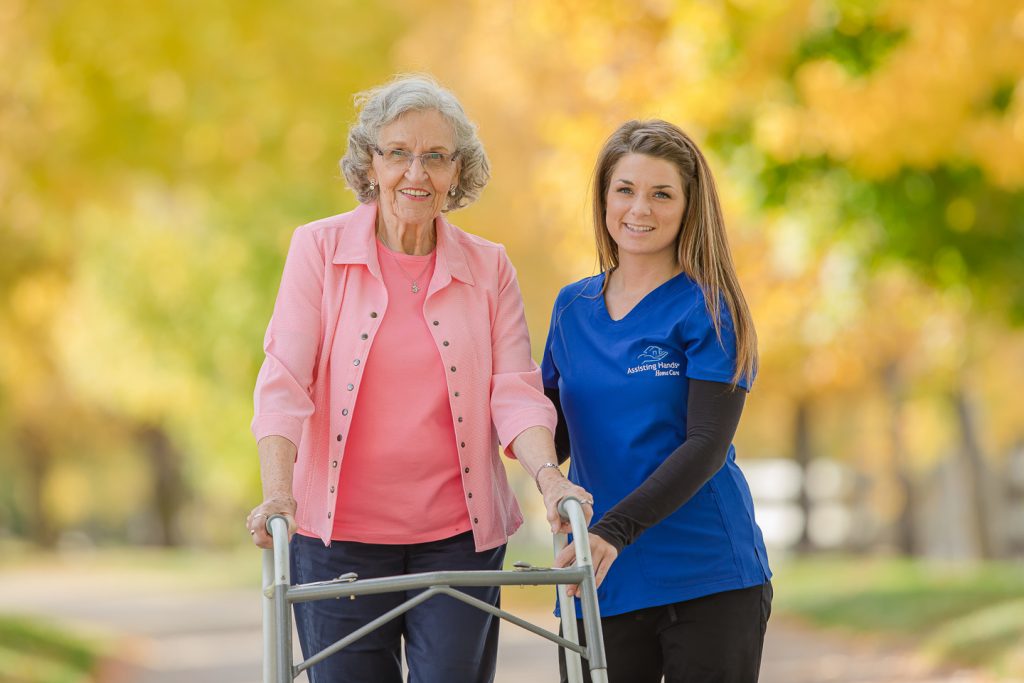
While growing older affects the skin, hair, and muscles, it also impacts the heart. Due to the aging process, seniors have a higher risk for heart disease or a heart attack. The elderly, with the support of their caregivers, are encouraged to promote optimum heart health.
Heart Health in Seniors
The heart is a muscle, and like other muscles, it is susceptible to changes while aging. Older adults must give consideration to their cardiovascular health early on. If seniors wait to think about their heart health in their 70s and 80s, it could be too late to make impactful changes.
Heart disease is not uncommon. In fact, about 20 percent of men and 10 percent of women in their 60s suffer from heart disease. By the time seniors reach 80, these percentages grow to 32 percent of men and close to 19 percent of women.
Seniors are urged to start making lifestyle improvements as early as possible to benefit their heart muscle. If older people keep their heart healthy starting in their 50s and 60s, they improve their chances of helping their heart muscle for a much longer trajectory.
Heart disease can be brought on by numerous factors. Seniors with uncontrolled high blood pressure, are at risk. High blood pressure is caused by arteriosclerosis, or hardening of the arteries over many years, and is a major risk factor for heart disease.
Similarly, high cholesterol can lead to heart disease. Although high cholesterol can be inherited, it is often caused by poor lifestyle choices, such as inactivity, smoking, and an unhealthy diet. Fortunately, these choices are modifiable, allowing seniors to reduce their risk for heart disease.
1. Eat a nutritious, heart-healthy diet
No single diet will erase the risk for heart disease but eating nutritiously can help seniors promote a healthy heart. Consume fiber-rich fruits, vegetables, and whole grains. Opt for good fats, such as those found in olive oil, fish, and avocados. Cut back on sugars and cholesterol.
Diets seniors are encouraged to follow include the Mediterranean diet or the DASH (Dietary Approaches to Stop Hypertension) diet. Heart-healthy omega-3 fatty acids are abundant in these pre-designed plans. The diets do not include unhealthy saturated fats, like those found in desserts, red meat, and fried foods.
2. Exercise on a regular basis
Physical activity promotes heart health in numerous ways. The heart pumps more efficiently when seniors engage in aerobic exercise. Regular exercise also helps the aging body trim fat, so that the heart does not need to work excessively hard to push blood through the body.
Seniors should aim for 150 minutes of moderate-intensity aerobic activities every week. If this amount of exercise is too strenuous, break up the activities into 30-minute sessions three times per week. Add muscle-strengthening exercises to prevent muscle atrophy and keep the muscles strong.
Examples of exercises include walking, swimming, or bicycling. Older adults are advised to choose an activity they enjoy doing so that they will stick with it. Caregivers, too, can motivate elderly care recipients by establishing exercise schedules or providing transport to exercise classes.
3. Reduce chronic, day-to-day stress
Chronic stress is unhealthy even for the heart. Daily stress narrows arteries and elevates blood pressure, factors that increase the risk for heart disease. Seniors can choose healthy ways to beat stress, like taking a walk, meditating, or confiding in a caregiver or friend.
Sleep is essential to reducing stress. Adults are advised to receive 7 to 8 hours of quality sleep each night. If seniors experience difficulty falling asleep, they should quiet their minds before bedtime, turn off devices or read a book. Staying on an established sleep schedule can also help.
4. Know blood pressure and cholesterol levels
Seniors who aim to promote good heart health should know their blood pressure levels, cholesterol levels, and body mass index. A doctor will perform tests to determine these levels. Depending on the results, the physician may want to test the senior’s coronary calcium.
Testing coronary calcium levels lets doctors know if calcium deposits have built up in the senior’s arteries, which could limit blood flow to the heart—an early sign of heart disease. At the doctor’s office, the senior may also undergo a stress test, which is another screening for heart disease.
Seniors with early heart disease may not show any symptoms, or the symptoms may be barely noticeable. Due to these reasons, older adults should schedule regular checkups with their physician. People who feel chest pain, pressure, or discomfort should contact their doctor immediately.
Promote Good Heart Health with Home Care
Taking steps to prevent heart disease is important at any age. Since many of the risk factors for heart disease are modifiable, seniors can make small changes to their daily routine and make big differences to their heart health. When older adults need help with modifications, caregivers can help.

Professional caregivers from Assisting Hands Home Care will help your elderly loved one make healthy lifestyle changes that benefit not only their heart health but their overall physical and emotional well-being. We provide comprehensive nonmedical elder care in the comfort and familiarity of home.
Key caregiver responsibilities include discreet assistance with personal hygiene tasks, like bathing, toileting, grooming, and dressing, as well as timely medication reminders, light housekeeping, grocery shopping, and meal preparation. We ensure seniors eat a heart-healthy diet and stay hydrated each day. Caregivers monitor the home for fall-risks, too.
We provide transportation to doctors’ offices for regular medical checkups, so heart disease can be detected early. Older care recipients who are enrolled in group exercises are transported to classes by our caregivers. We also serve as pleasant companions to keep loneliness and isolation at bay.
Assisting Hands Home Care is an invaluable resource for seniors and their families. Our care services allow the elderly to age in place and continue to live a high quality of life. Call us at (630) 407-1932 when you need quality senior home care in Burr Ridge, IL | Lyons, IL | Indian Head Park, IL | McCook, IL | Hodgkins, IL | Countryside, IL | Willow Springs, IL | Palisades, IL | La Grange Highlands, IL | Clarendon Hills, IL | Brookfield, IL | Western Springs, IL | Hinsdale, IL | Darien, IL | La Grange, IL | Downers Grove, IL | Oak Brook, IL | Willowbrook, IL and the surrounding areas.















